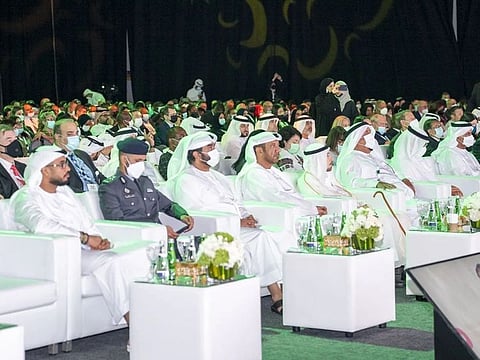Which behavioural addictions are common in the UAE? A new study may soon find out
The addictive behaviours are known have increased due isolating effects of COVID-19

Abu Dhabi: Given the high rate of internet penetration in the UAE, residents are at heightened risk of developing behavioural addictions to a variety of behaviours, including gaming, shopping, and social media use.
These addictive behaviours have been known to increase as a result of the isolating effects of the COVID-19 pandemic, and the National Rehabilitation Centre (NRC) is therefore set to launch a new study to obtain a cross-sectional picture of addictions in patients seeking help for psychological problems, a top expert announced on Thursday at the International Society of Substance Use Professionals (ISSUP) conference in Abu Dhabi.
Bahavioural addictions
“Behavioural addictions develop because these actions offer a natural reward for the patient. Beyond a certain level however, they can be damaging, prompting patients to seek medical help. We want to gain an idea of the most common types of behavioural addictions in the UAE among both Emiratis and expats, especially as we have no data on this at present,” said Dr Shamil Wanigaratne, consultant clinical psychologist and senior adviser to the NRC director general. He was speaking at the ISSUP 2022 conference in Abu Dhabi.
“For this study, we will use data provided by clinicians across the UAE. We hope the results will act as a gateway to further study the prevalence of addictive behaviours among youth, specifically those aged 12-18 years old, and then allow for the development of evidence-based treatments to help those affected,” he added.
Growing concerns
Behavioural addictions, sometimes known as impulse control disorders, offer a sense of reward to addicts, similar to the reward experienced by the use of substances. Diagnostic models do not currently include the criteria necessary to identify behaviours as addictions in a clinical setting, but they were proposed as a new class of disorders in the fifth edition of the Diagnostic and Statistical Manual of Mental Disorders (DSM-5).
“The DSM-5 does include gambling, but we have seen increased anecdotal evidence and concerns about gaming disorder, especially in Southeast Asia. We do not know how prevalent it is in the UAE, but the country has one of the highest rates of internet penetration. We need to know, are youth at risk? Because once they get addicted, the brain gets used to the reward system,” Dr Wanigaratne said.
Without action, the problem will only increase, the expert added, especially as the younger generation gains greater access to smartphones.
Different treatment
“The kind of treatment required for behavioural addictions also differs from treatment for substance abuse disorders, and this study will indicate roughly how much intervention may be required. Once approved by health regulators, we expect to launch the study this year, and will collect data for a month or so. The idea is that people who are facing difficulties due to addictive behaviours will first approach primary care physicians, family doctors, and clinicians, and it is the scale of these reports that we are trying to capture with this study,” Dr Wanigaratne added.
At the outset, the expert believes internet gaming will be one of the most commonly reported addictive behaviours.
Combating substance abuse
The ISSUP 2022 conference, which kicked off on Thursday in Abu Dhabi, is also seeing more than 1,000 experts discuss the latest approaches to diagnose and combat substance abuse. The five-day conference is being hosted by the NRC, in partnership with ISSUP and the United States Department of State: Bureau of Intl Narcotics & Law Enforcement (INL).
Youth forum
The third edition of the Global Forum for Young Leaders in the Prevention of Psychotropic Substances is also being held alongside to enhance cooperation between youth leaders who can help spread awareness of the dangers of addiction.
“Today’s youth can get access to addictive substances from a variety of sources, including through social media. The work we do to warn them about the dangers these substances pose is therefore very important,” Khaled Al Baloushi, a member of the Emirates Youth Council who was participating in the forum.
